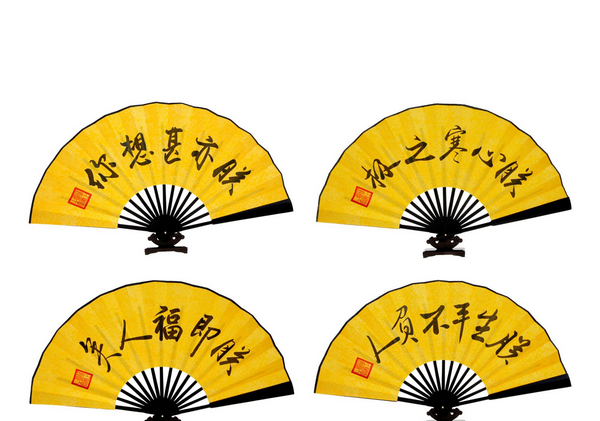 |
|
The museum has cultivated a variety of souvenirs, including fans.[Photo provided to China Daily] |
And, with the first national general survey of moveable cultural heritage, which started in 2012, likely to be completed by the end of this year, Guan expects the establishment of a huge database will offer abundant resources for more cultural souvenirs to be developed.
But, the manner in which the database will be used is yet to be decided.
In another development, the National Museum of China has launched a project to use cyberspace to boost its cultural souvenir creation process.
The museum recently signed an agreement with online business giant Alibaba to build a platform called Wenchuang Zhongguo, which means "cultural creativity in China".
Li Liusan, deputy director of the museum, says the new platform will share information on its collections with designers from Alibaba to help them develop different products.
"It (the agreement) will also help attract investors and solve a problem, which has been faced by many museums-the lack of money-to develop ideas into products," says Li.
The platform will be open to small-scale museums all over the country, which often have excellent collections that have the potential to be developed into popular souvenirs, but have no expertise to do so.
An offline business center will also operate in a pilot free trade zone in Shanghai to help the process, say Li.